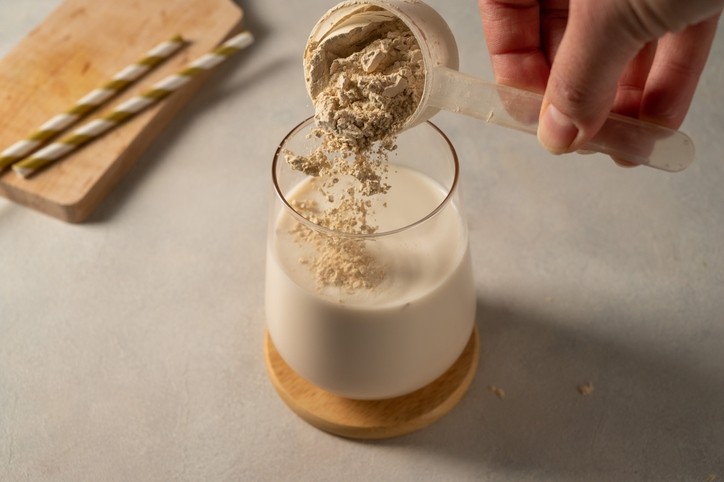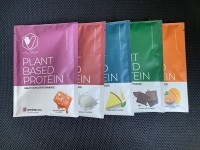AminoLabs plant protein blend aims to optimise taste, texture and nutrition

The Belgian makers of sport nutrition solutions claim to have created an ingredient to solve all the key issues holding back the plant protein market today.
“Looking at the market of plant based proteins in Europe, it’s still behind the US market,” asserts the firm’s commercial director Gert Gaukema. “And looking at the reasons why that is, there are several things holding it back.
“The first is taste – it’s not on a level that can compete with whey. Another issue is the graininess in the mouth, and the third issue is the aftertaste.”
Providing a blend of fava bean, chick pea and rice, the newly launched blend not promises to solve taste and texture concerns as well as offer a ‘comprehensive amino acid profile’ which gets “as close to the nutritional profile of whey as possible”.
Gaukema argues these amino acids can also be better absorbed by the body than whey, with the additional benefit of zero allergens.
A typical 28g serving of the blend offers around 95 calories, 21g protein, 1.2g carbs, and zero sugar or fat.
What’s more, major inflation of whey prices in recent years mean this ingredient is currently cheaper to purchase than whey protein, according to Gaukema.
“Whey protein prices have increased very fast and so at the moment this ingredient will be cheaper than whey,” he asserts.
Testifying for this significant gap in the market, Nick Morgan, founder of the active nutrition industry insights and consultation firm Nutrition Integrated, points out that it is too easy for consumers to be drawn away from the plant-based protein options currently on offer.
“If you’re a vegan you either opt in or opt out, using the plant proteins on offer or not using protein supplements at all," he argues, "whereas if you’re flexitarian you can default back to dairy, due to taste, so taste is a huge enabler for flexitarians to not buy into this market.
“Especially with the macro-economic issues, it takes a lot to acquire and keep hold of customers, so taste has to be really good otherwise customers won’t repeat purchase.”
Morgan explains the plant protein sector is currently dominated by pea, followed by rice, with these solutions far from whey's sensorial profile. As such, consumers are calling out for some differentiation.
He argues: “This product provides some differentiation as well as taste and nutrition benefits.”
The new launch could also help cater to growing demand for multiple health benefits, he suggests.
“People often want more secondary health benefits and plant proteins are a great place to provide this with benefits such as immune health, brain health, healthy ageing, and added vitamins and minerals.
"If you look at product launches in the last 12 months, plant protein are launching with more of these additional benefits.
"Consumers don't tend to turn to whey for additional health benefits but the plant protein category lends itself to providing holistic health."






